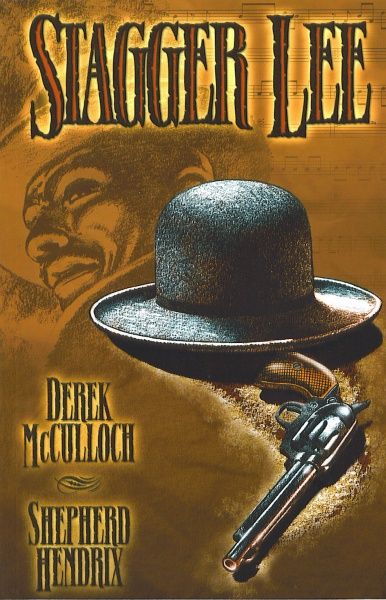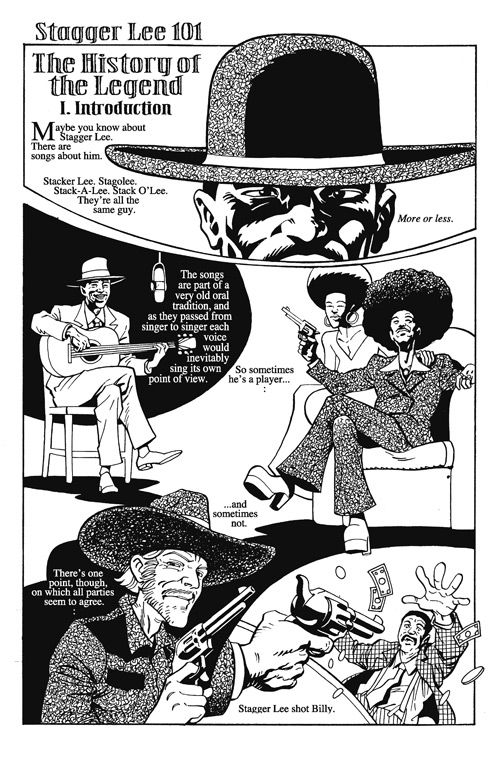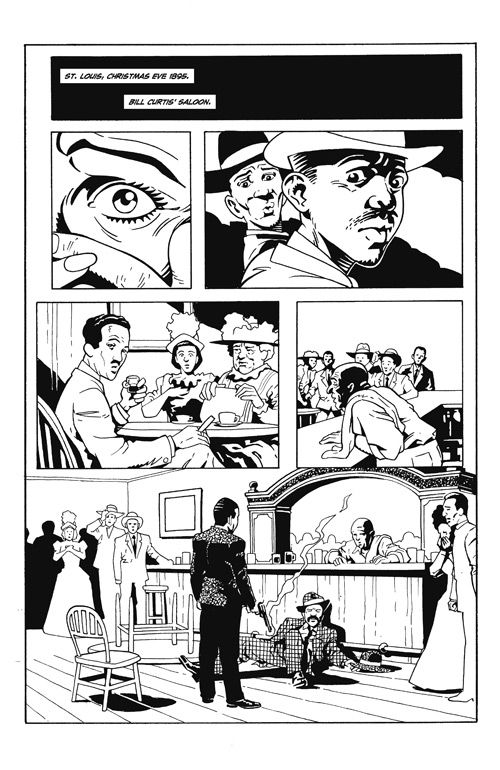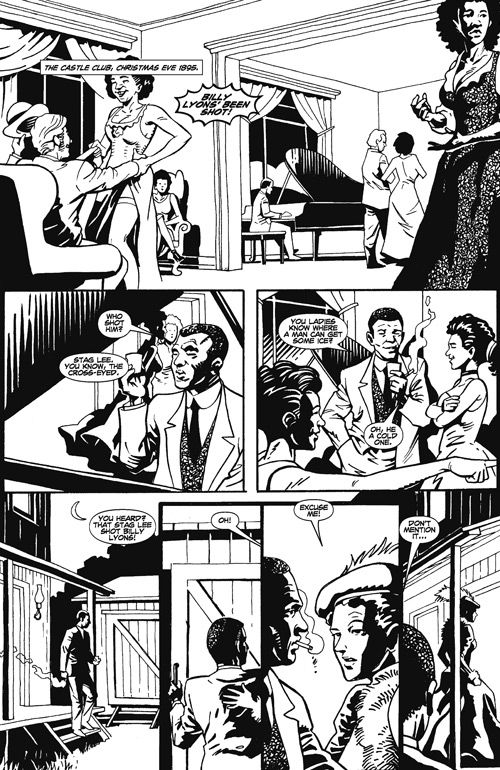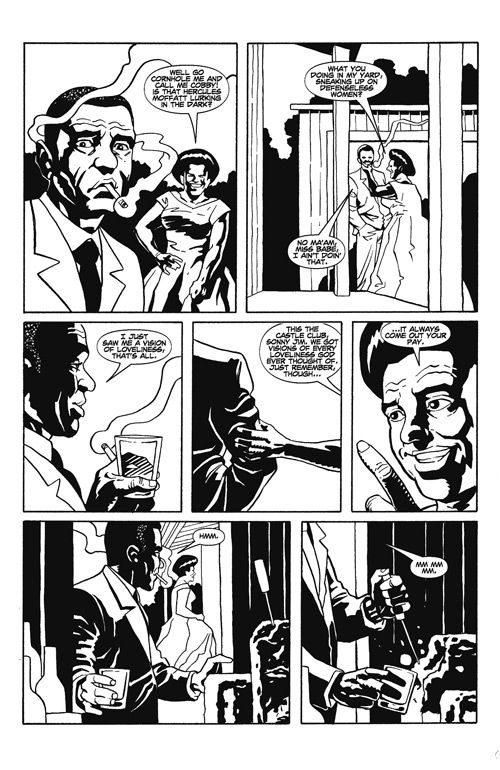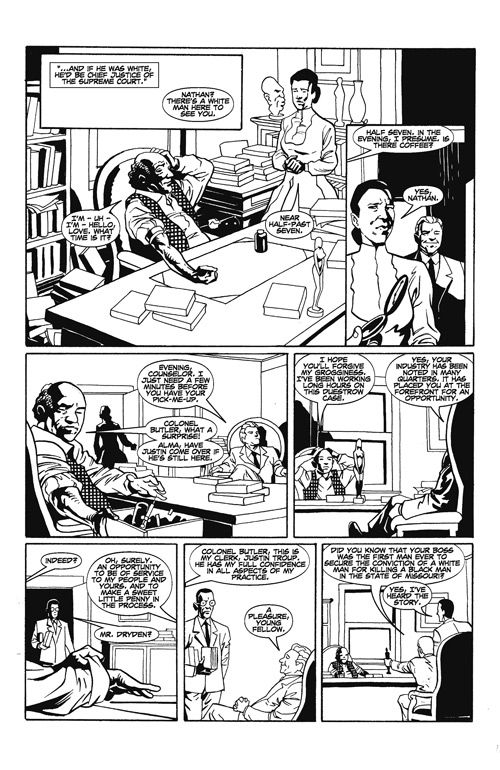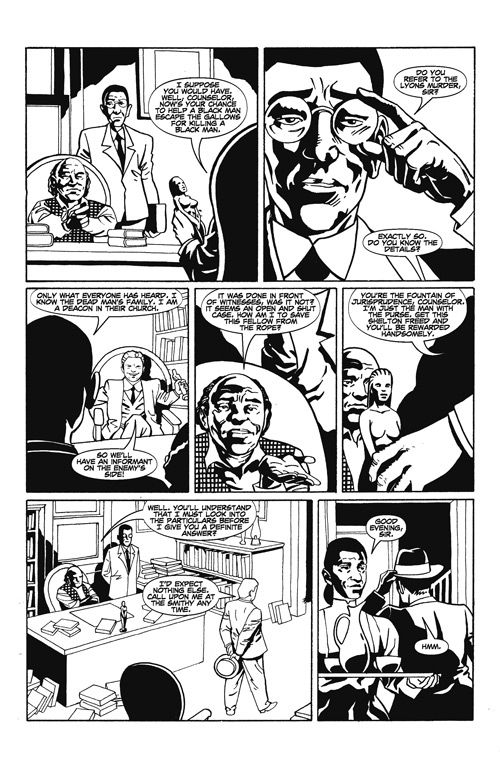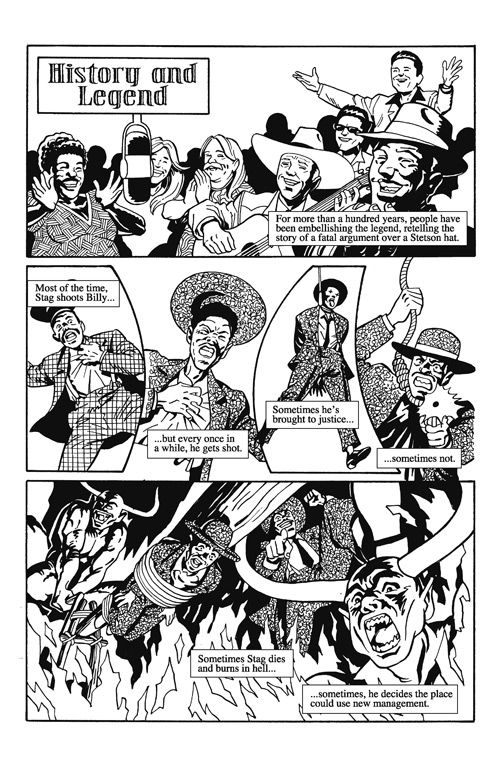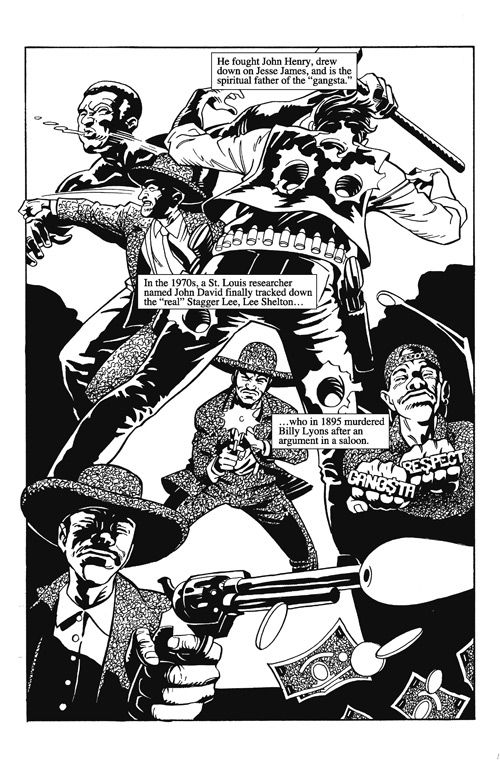Here is the latest in our year-long look at one cool comic (whether it be a self-contained work, an ongoing comic or a run on a long-running title that featured multiple creative teams on it over the years) a day (in no particular order whatsoever)! Here's the archive of the moments posted so far!
Today we take a look at Derek McCulloch and Shepherd Hendrix's Stagger Lee...
.
Enjoy!
This comic won a whole ton of Glyph Awards a couple of years back. It was also nominated for an Eisner Award for Best Reality-Based Work!
Stagger Lee is a novel in two separate, yet connected, parts. On the one hand, it is a fictionalized account of the late 19th century trial of "Stagger Lee" Shelton for the murder of Billy Lyons. On the other hand, it is an examination of how the song about Stagger Lee grew and changed over the years.
For me, the idea of studying the history of the song "Stagger Lee" was just so fascinating and captivating that it really makes the fictionalized history lesson that makes up the rest of the book look boring in comparison.
This is not to say that the story of the trial IS boring. It isn't. It is a well-structured enough tale, featuring some good characters, although I don't know if I was a big fan of the character who "invents" the Stagger Lee song, who is involved in a tragic romance in the book. For a book that takes so much time paying attention to facts and making the story flow logically and historically, I wasn't totally on board with adding a new character (and his ensuing connections to the other people in the story) wholesale. It reminds me of when films just add on a romantic subplot to historical stories.
Still, as I noted, this story was still well done, just not as good as the striking historical work in the book. And the historical work is not really distracted by the fictional aspect. I was already quite familiar with the song before reading the book (as Bob Dylan covered it in the 90s, natch), but even with the knowledge I had of the song, there were still plenty of utterly captivating facets of the song's evolution for me to learn.
In addition, I have to credit McCulloch and Hendrix for the sheer bravery of trying an idea this clever in graphic novel format. This is the exact type of project comic books need more of - not just books willing to take on a topic in an inventive and scholarly manner - but simply books willing to do something different from all the other comics out there. This is truly a unique work.
Shepherd Hendrix' artwork on the book is very crisp and detailed, with strong linework. This was a return to comic book work for Hendrix, and I'm glad we have him back (although, selfishly, I thought his Bob Dylan could have looked cooler).
Here is a smattering of sample pages from the first sixteen pages, spread out two pages at a time...
________________________
__________________________
________________________
In any event, as a complete work, I would definitely recommend Stagger Lee. It is a very good book.
Here's the link to the website for the book - you can find more sample pages there.


